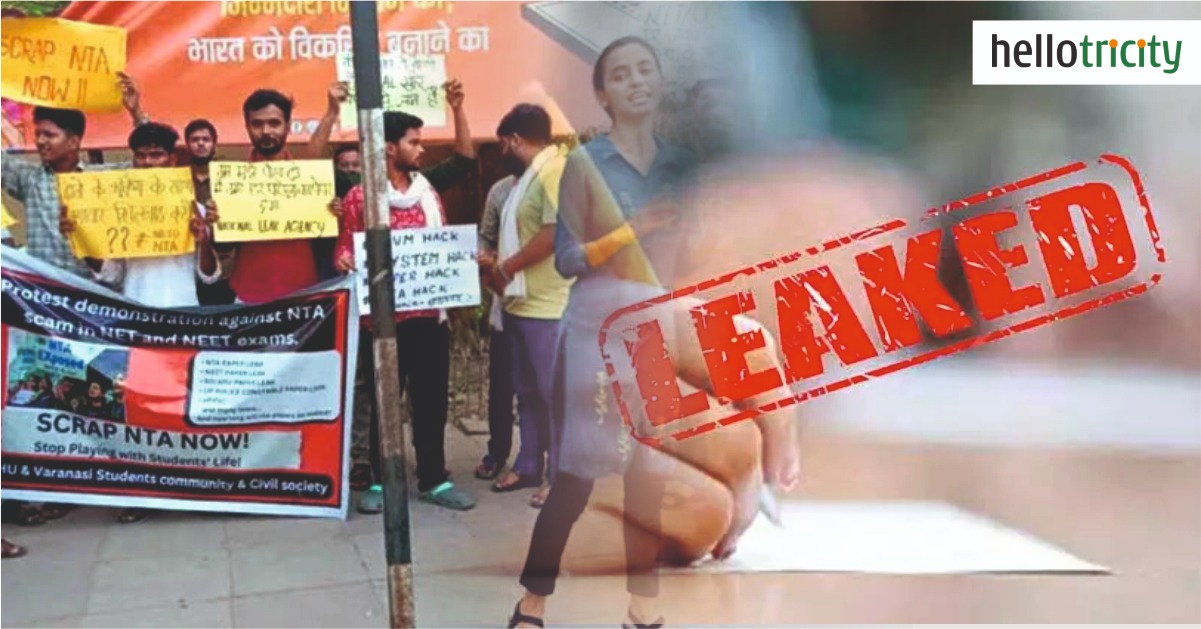The Union Government has announced the Public Examinations (Prevention of Unfair Means) Act, 2024 as a key move towards redeeming India’s public examination system. The Act, approved by the President last month, comes into force on June 21st, next year, to deal with the serious challenge of paper leaks and cheating in important tests like NEET and UGC-NET among other high stake examinations which put at risk future of many students.
Key Provisions of the Act
The Public Examinations (Prevention of Unfair Means) Act of 2024, introduces stringent measures to fight very many forms of cheating during public exams. Here are the key provisions:
- Punishment for Unfair Means:
If someone is caught cheating during an exam, they could go to jail for up to five years or be fined no less than INR 10 Lakh
- Liability of Service Providers:
Service providers or testing agencies if discovered to be involved in malpractices would be liable to a penalty of INR 1crore. They could also not hold any public examination during a period of four years, and the proportionate cost of the examination shall be recovered from them.
- Senior Management Involvement:
If senior management personnel are found involved, they face a jail term of three to ten years and a fine of INR 1 crore.
- Organized Crime:
Anyone involved in organized cheating activities will face imprisonment of at least 5 years, extendable to 10 years, and a fine of at least INR 1 crore.
Context and Impact
Also Read: UGC-NET Exam Cancelled: 9 Lakh Students In Limbo As Exam Integrity Questioned
The enactment of this law comes amid widespread complaints regarding paper leaks in major exams. Recently, the NEET-UG 2024 exam faced significant irregularities, with several men confessing to leaking the question paper ahead of the exam in Bihar. Similarly, the UGC-NET exam was cancelled following a paper leak, with the question paper being sold on the dark web and encrypted social media platforms.
This new law aims to address such issues by providing a robust legal framework to deter and punish malpractices. It not only targets individuals but also holds institutions accountable, ensuring a comprehensive approach to maintaining the sanctity of public examinations.
Expert Opinions and Recommendations
According to experts, while the new law marks an important move, its meaningful implementation at the grassroots is very significant. To guarantee the law is implemented well, there is need for central, state and local government collaboration. Moreover, use of technological advancements such as AI and data analytics will aid in boosting openness and security during exams. Capacity-building programs for invigilators and involving ethical hackers to identify system loopholes are also recommended.
The new law also emphasizes the need for strong grievance redressal mechanisms to ensure that students do not have to resort to legal battles to address exam-related issues.
Conclusion
The law about Public Examinations (Prohibition of Unfair Means) 2024 is considered as one of the key events in India’s war against cheating during exams. This particular legislation provides harsh transgressions as well as broad measures in order to rebuild trust towards the exams system among people while making sure that everyone who wants to take these exams gets what he/she deserves without any prejudice. Still yet the achievement of this measure depends largely on its implementation and how much it’s used by all parties as well as governments and educational authorities in the country.




